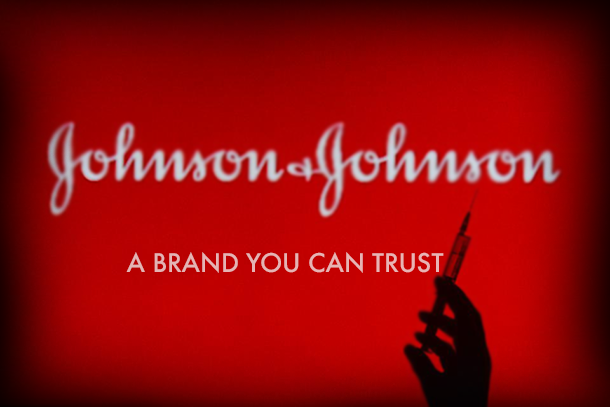
As the adverse reactions, injuries and deaths from the various experimental COVID-19 vaccines continue to compound on America’s VAERS, UK Yellow Card and EU Eudravigilance reporting systems, the mainstream media and governments have adopted an unofficial policy of omerta – systematically ignoring the continually alarming data sets which show unprecedented levels of vaccine injuries and deaths.
This week, another disturbing report has come to light which has managed to break through the mainstream media’s wall of silence on the issue.
Washington Post confirms today:
“The Food and Drug Administration plans to say this week that the single-dose vaccine has been linked to a serious but rare side effect called Guillain-Barré syndrome, according to four people who spoke on the condition of anonymity to describe internal discussions. The incidence is rare — fewer than 100 cases among the 12.8 million people who received the shot in the United States — and health officials plan to emphasize that the benefits of the vaccine outweigh potential risks.”
In the FDA report includes the usual repeated caveat – that despite the horrific side effects, “the shot’s benefits outweigh the risk.” However, government regulators will no longer be able to casually deny the connection between autoimmune disease Guillain-Barré syndrome and the rushed COVID vaccine.
There are other issues with this experimental injection. Back in April, Johnson & Johnson, was forced to halt the roll-out of their experimental COVID vaccine due to the emergence of potentially lethal “rare blood clots” in women who took the not fully licensed corporate product. The media then went silent on the issue, and it was business as usual.
In addition, the controversial J & J jab was recently halted in Belgium for under 40’s after a fatal blood clotting incident.
This latest vaccine debacle is a repeat of a previously botched experimental vaccine roll-out for the fake Swine Flu hoax of 1976 – when the US government lied to the public about there being a major flu epidemic in order to coerce millions of Americans into taking a new experimental Swine Flu jab. The results were disastrous, with scores of lives ruined, including some deaths. Many lives were also destroyed by the Guillain-Barré syndrome ‘side effect,’ after reckless government regulators and the pharmaceutical firms insisted their product was “safe and effective.” The vaccine program was then promptly shut down, with millions of dollars in compensation claims paid-out to the victims.
Today’s news report goes on to outline the circumstances of this latest government agency warning on the unlicensed experimental Johnson & Johnson injection:
About 100 preliminary reports of Guillain-Barré have been detected after 12.8 million doses of Johnson & Johnson vaccine were administered, the Centers for Disease Control and Prevention said in a statement. These cases have largely been reported about two weeks after vaccination and mostly in men, many aged 50 and older. Available data do not show a pattern suggesting a similar increased risk with the Pfizer-BioNTech and Moderna vaccines, after more than 321 million doses of those vaccines have been administered in the United States. The Guillain-Barré cases will be discussed as part of an upcoming meeting of CDC advisers, the agency said.
It’s clear from their statements that the FDA and pharma giant Johnson & Johnson are going to close ranks on the issue – still stubbornly insisting that their experimental injection is still ‘safe and effective,’ stating that, “Officials are expected to emphasize that the Johnson & Johnson vaccine is safe and that its benefits clearly outweigh the potential risks, according to the people familiar with the situation. Johnson & Johnson and the FDA declined to comment.”
Despite the ongoing cover-up, this latest problem will invariably be added to a growing string of controversies:
The warning will be the latest blow to a vaccine that had been widely anticipated for its ease of use — it requires only a single dose, which makes it especially helpful in immunizing harder-to-reach populations and regions. But the vaccine has been plagued by problems.
In April, federal officials paused use of the vaccine after it was linked to another rare side effect — severe blood clots. That pause was lifted within days after an extensive safety review by the FDA and CDC, and a warning was added to the Johnson & Johnson label.
The vaccine also has been hobbled by production problems at Johnson & Johnson’s subcontractor, Emergent BioSolutions, the only U.S. manufacturer of the vaccine. The Baltimore plant was shut down in April after federal officials discovered millions of doses had been contaminated with Astra Zeneca vaccine, which was also being made there.
Johnson & Johnson has had to throw away the equivalent of about 75 million doses of the vaccine. About 40 million doses have been released for use. In response to the contamination, the Biden administration removed AstraZeneca manufacturing from the plant and put Johnson & Johnson in direct control of vaccine production there. But Emergent has not received authorization from the FDA to resume manufacturing the Johnson & Johnson product.
Other vaccines have also been associated with rare adverse events:
The FDA in late June decided to add a warning to the Pfizer and Moderna coronavirus vaccines about mild, extremely unusual cases of myocarditis — heart inflammation — in some young adults and teens after vaccination. Federal health officials said there was “a likely association,” and that the problem appears most likely to occur in young men after they receive two doses of the vaccine.
The CDC and the Department of Health and Human Services, together with 15 of the country’s leading medical and public health organizations, issued a joint statement in June saying they “strongly encourage everyone 12 and older” to get the Pfizer and Moderna shots because the benefit of vaccination far exceeds potential harm.
In June, the American Neurological Association reported that two studies published in the journal Annals of Neurology had found 11 cases of Guillain-Barré syndrome two to three weeks after vaccination with the AstraZeneca vaccine. The cases, which were from England and India, involved an unusual variant of the disease that caused severe facial weakness, the organization said. An accompanying editorial described a similar case involving a Boston man who received the Johnson & Johnson vaccine.
Vaccine safety officials in Europe have recommended that a warning be added about Guillain-Barré to the AstraZeneca vaccine. But the European safety committee said that while cases have been reported following vaccinations, “at this stage the available data neither confirms nor rules out a possible association with the vaccine.”
This latest news comes on the heels of President Biden announcing he’ll be deploying door-to-door vaccine “Strike Teams” to try and coerce any remaining unvaccinated Americans to accept injecting one of the experimental pharmaceutical products.
READ MORE VACCINE NEWS AT: 21st Century Wire Vaccine Files
PLEASE HELP SUPPORT OUR INDEPENDENT MEDIA PLATFORM HERE















